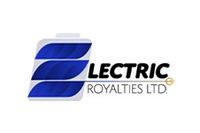EV Makers "Not Doing Enough" to Tackle Human Rights Abuses in Cobalt Supply Chains
Amnesty International warns in its latest report that companies like Tesla are failing to tackle human right abuses in their cobalt supply chains.
Industry giants, including major electric carmakers, are failing to tackle human rights abuses in their cobalt supply chains, Amnesty International warns in its latest report, released on Wednesday (November 15).
The report comes two years after Amnesty exposed a link between child labor in the Democratic Republic of Congo (DRC) and the battery supply chains of leading EV and electronics companies such as Apple (NASDAQ:AAPL), Microsoft (NASDAQ:MSFT) and Tesla (NASDAQ:TSLA).
In “Time to Recharge,” Amnesty ranks 29 companies on how well they have been tracking their cobalt sources since its first report was released. Demand for cobalt, a key element in the lithium-ion batteries used to power EVs, is expected to soar in the coming decades as sales of EVs surge.
“As demand for rechargeable batteries grows, companies have a responsibility to prove that they are not profiting from the misery of miners working in terrible conditions in the DRC,” said Seema Joshi, head of business and human rights at Amnesty.
More than 50 percent of the world’s cobalt supply comes from the DRC, with about 20 percent extracted by artisanal miners. Once mined, most of the cobalt is sent to China, where it’s processed into the chemical products used in rechargeable batteries.
Infographic and photo via Amnesty.org.
“Across the board there is a lack of transparency,” Amnesty states in the report. “Companies are not disclosing their assessments of the potential for human rights abuses in their supply chains, or of their suppliers’ own due diligence practices.”
Seven automakers are covered in Amnesty’s study, together with one cobalt smelter, China’s Huayou Cobalt, the largest DRC cobalt purchaser. “Huayou Cobalt is moving in the right direction and demonstrating to its peers that it is possible to strengthen due diligence in a short amount of time, [but] there is significant scope for improvement,” Amnesty notes.
Among carmakers, the report shows thatBMW (FWB:BMW) has made the most improvements, while Renault (EPA:RNO) and Daimler (FWB:DAI) “performed particularly badly.” Amnesty also says Tesla is “showing signs of potential in light of its human rights investigative practices,” but there is a lack of information about how it has assessed the risks in its supply chain.
In response to the report, Daimler said it is working on identifying the smelters and mines that supply its cobalt, with Renault saying that it has set up a working group with its suppliers. Meanwhile, Tesla said it is committed to “only sourcing responsibly produced materials,” and pointed out that its NCA batteries use relatively little cobalt.
“As demand for electric cars grows, it is more important than ever that the companies who make them clean up their act. Governments also have a role to play here, and should take meaningful action on ethical supply chains, a priority when implementing green policies,” said Joshua Rosenzweig, strategy advisor on business and human rights at Amnesty.
Don’t forget to follow us @INN_Resource for real-time news updates!
Securities Disclosure: I, Priscila Barrera, hold no direct investment interest in any company mentioned in this article.

